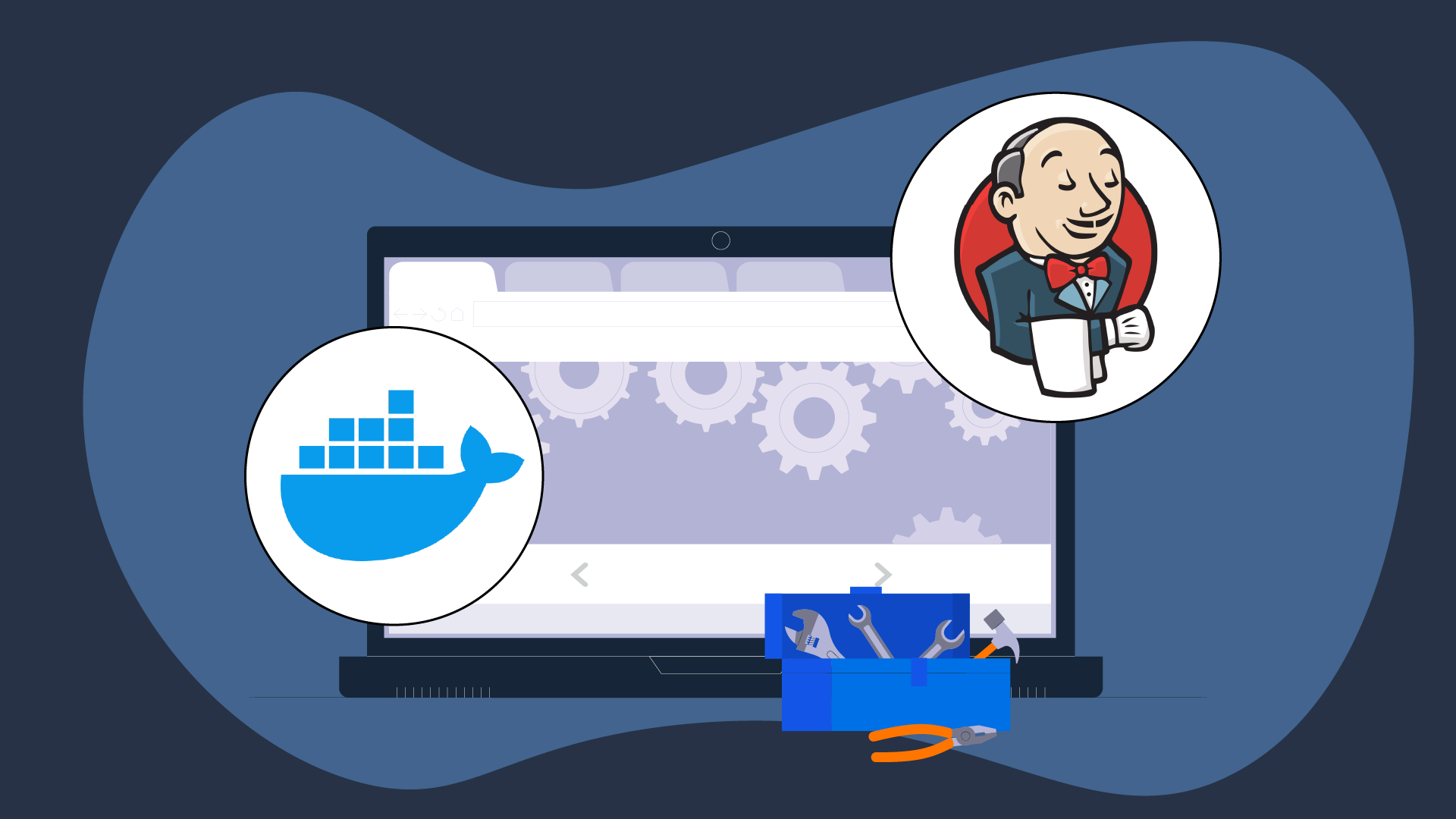Курси по темі
Всі курсиTop 5 Technologies Every DevOps Engineer Should Master
Roadmap

In the ever-evolving landscape of DevOps, staying ahead of the curve is essential. DevOps engineers are responsible for bridging the gap between development and operations, ensuring smooth and efficient software delivery pipelines. To excel in this role, mastering key technologies is crucial. Here are the top 5 technologies every DevOps engineer should prioritize:
1) Docker
Docker has revolutionized the way applications are developed, shipped, and deployed. As a containerization platform, Docker allows DevOps engineers to package applications and their dependencies into lightweight, portable containers. These containers ensure consistency across different environments, streamline deployment processes, and enhance scalability. Understanding Docker fundamentals, such as container creation, management, and orchestration, is essential for modern DevOps practices.
Run Code from Your Browser - No Installation Required

2) Kubernetes
Kubernetes, often abbreviated as K8s, is the industry-standard platform for container orchestration. It automates the deployment, scaling, and management of containerized applications, providing a robust infrastructure for DevOps teams. Kubernetes simplifies the management of complex microservices architectures, ensuring high availability, scalability, and fault tolerance. DevOps engineers should master Kubernetes concepts like pods, deployments, services, and ingress to effectively manage containerized workloads in production environments.
3) Jenkins
Jenkins is a widely-used open-source automation server that facilitates continuous integration and continuous delivery (CI/CD) practices. DevOps engineers leverage Jenkins to automate various stages of the software delivery pipeline, including code integration, testing, and deployment. With Jenkins, teams can achieve faster release cycles, improve code quality, and enhance collaboration between developers and operations. Proficiency in Jenkins configuration, job creation, and plugin management is essential for implementing efficient CI/CD pipelines.
4) Ansible
Ansible is a powerful automation tool that simplifies IT configuration management, application deployment, and task automation. Unlike other configuration management tools, Ansible operates over SSH, requiring no agent installation on managed nodes. DevOps engineers use Ansible to automate infrastructure provisioning, manage server configurations, and enforce desired state across environments. With Ansible's simple syntax and agentless architecture, teams can achieve greater efficiency and consistency in their operations workflows.
Start Learning Coding today and boost your Career Potential

5) Git
Git is a distributed version control system widely adopted in modern software development practices. DevOps engineers use Git to manage source code, track changes, and collaborate with team members effectively. Understanding Git fundamentals, such as branching, merging, and conflict resolution, is essential for maintaining code integrity and facilitating seamless collaboration within DevOps teams. Additionally, proficiency in Git enables DevOps engineers to integrate version control into CI/CD pipelines, ensuring code reliability and traceability throughout the software delivery lifecycle.
Exploring Additional Cutting-Edge Technologies
Beyond the top-tier technologies outlined, there exists a plethora of other tools and technologies that can significantly streamline the lives of DevOps engineers and enhance their efficiency. For instance, Vault for managing secrets and confidential information, Packer for automated image creation of virtual machines and containers, or Splunk for log monitoring and analysis. It's also worth paying attention to Infrastructure as Code tools like Chef and Puppet, which automate server configuration and management. Additionally, Grafana can be valuable for visualizing metrics and system monitoring, while AWS Lambda or Azure Functions can aid in deploying serverless functions without managing infrastructure. Regardless of the specific tools, understanding your project's needs and selecting technologies that best align with its requirements is paramount.
FAQs
Q: What is Docker and why is it important for DevOps?
A: Docker is a containerization platform that allows applications and their dependencies to be packaged into lightweight, portable containers. It is important for DevOps as it streamlines deployment processes, ensures consistency across environments, and enhances scalability.
Q: How does Kubernetes complement Docker in the DevOps ecosystem?
A: Kubernetes is an open-source container orchestration platform that automates the deployment, scaling, and management of containerized applications. While Docker facilitates containerization, Kubernetes provides tools for managing and orchestrating containerized workloads at scale, ensuring high availability and fault tolerance.
Q: What role does Jenkins play in DevOps practices?
A: Jenkins is an automation server used for continuous integration and continuous delivery (CI/CD). It automates various stages of the software delivery pipeline, including code integration, testing, and deployment, enabling faster and more reliable releases.
Q: How does Ansible differ from other configuration management tools?
A: Ansible is an automation tool that operates over SSH and requires no agent installation on managed nodes. Unlike other configuration management tools, Ansible uses a simple syntax and agentless architecture, making it easier to automate infrastructure provisioning, manage server configurations, and enforce desired state across environments.
Q: Why is Git essential for DevOps collaboration?
A: Git is a distributed version control system used for tracking changes in source code during software development. It facilitates collaboration, version control, and code change management across distributed teams, enabling DevOps engineers to work efficiently and maintain code integrity throughout the software delivery lifecycle.
Курси по темі
Всі курсиInstalling Jenkins with Docker
Easily deploy Jenkins with Docker for a fast and isolated CI/CD environment.
by Eugene Obiedkov
Full Stack Developer
Aug, 2025・3 min read

URL vs URI vs URN
Uniform Resource Identifiers
by Andrii Chornyi
Data Scientist, ML Engineer
Mar, 2024・7 min read

Universal Guide What Every Middle Developer Should Know
Key Concepts in Programming and Development
by Anastasiia Tsurkan
Backend Developer
Jan, 2024・11 min read

Зміст